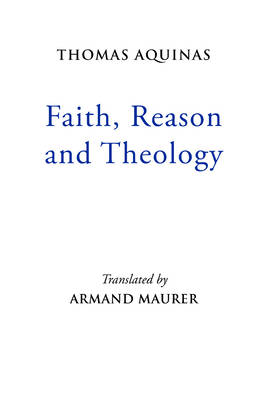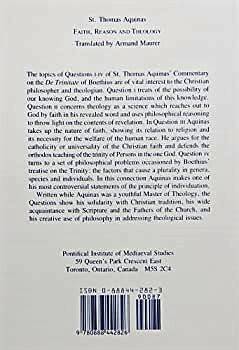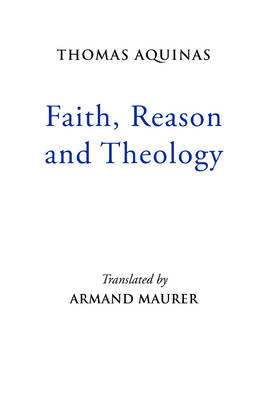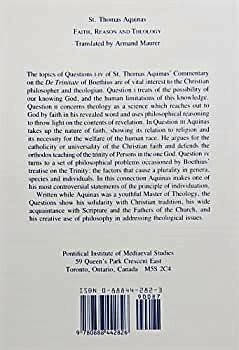
- Retrait gratuit dans votre magasin Club
- 7.000.000 titres dans notre catalogue
- Payer en toute sécurité
- Toujours un magasin près de chez vous
- Retrait gratuit dans votre magasin Club
- 7.000.000 titres dans notre catalogue
- Payer en toute sécurité
- Toujours un magasin près de chez vous


Description
The topics of Questions i-iv of St. Thomas Aquinas' Commentary on the De Trinitate of Boethius are of vital interest to the Christian philosopher and theologian. Written while Aquinas was a youthful Master of Theology, the Questions show his solidarity with Christian tradition, his wide acquaintance with Scripture and the Fathers of the Church, and his creative use of philosophy in addressing theological issues.
Question i treats of the possibility of our knowing God, and the human limitations of this knowledge. Question ii concerns theology as a science which reaches out to God by faith in his revealed word and uses philosophical reasoning to throw light on the contents of revelation. In Question iii Aquinas takes up the nature of faith, showing its relation to religion and its necessity for the welfare of the human race. He argues for the catholicity or universality of the Christian faith and defends the orthodox teaching of the trinity of Persons in the one God. Question iv turns to a set of philosophical problems occasioned by Boethius' treatise on the Trinity: the factors that cause a plurality in genera, species and individuals. In this connection Aquinas makes one of his most controversial statements of the principle of individuation.
Spécifications
Parties prenantes
- Auteur(s) :
- Editeur:
Contenu
- Nombre de pages :
- 166
- Langue:
- Anglais
- Collection :
- Tome:
- n° 32
Caractéristiques
- EAN:
- 9780888442826
- Date de parution :
- 01-01-87
- Format:
- Livre broché
- Format numérique:
- Trade paperback (VS)
- Dimensions :
- 137 mm x 206 mm
- Poids :
- 204 g








